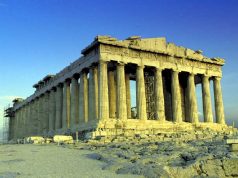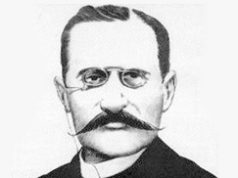Continuing with the 4th. Class goals, we believe that the myth was born of a primary attitude in the face of things, without any rational rigor and personal criticism. The reflection, active meditation and critical reason would destroy the mythical world and develop a different kind of explanation: the philosophical. (Excerpts taken from the Bibliography of the Spiritist Philosophy Course from SPIRITIST PHILOSOPHY STUDIES Project).
In The Spirits’ Book, question 628, the spirits told Kardec that although “everything comes in time,” there is no ancient system of philosophy, no tradition, no religion to neglect, because “all contain the germs of great truth.” With the key that the Spiritist Philosophy gives us, we can open the doors of conceptual analysis based on knowledge acquired; the Spiritist Philosophy breaks the common sense and opens broad and comprehensive perspectives, giving us the opportunity to interpret the world and its manifestations in a natural logic.
Based on the Bibliography of the course, we focus on Civilized and Agricultural Horizons, commented by its creator, John Murphy (The Origins and History of Religions, Manchester University Press, 1949), and extended with the spiritualist concepts of J. Herculano Pires: “In Spiritualism, the reason is shown as a function of the Spirit, one of its instruments of action, and not as the Spirit itself. The supremacy of reason does not exist, although the reason is presented as an indispensable tool to spiritual enlightenment; one must consider that the reason was the ladder that man has used to overcome the earlier horizons, liberating them from the realm of instinctive or natural forces.
On the other hand, Claude Levi-Strauss, studying the “wild” thought showed that the so-called savages are not primitive or backward, but they operate with mythical thinking. Thus, with its functions, the myth establishes standards of representation that symbolize human contact with the reality. And if we analyze the function of myth today, it did not lose its representativeness, but not as a projection of religiosity, although formal religions still maintain it, but as a metaphor that transmit messages from multiple and diverse symbolism. Joseph Campbell, one of the greatest scholars of mythology, makes those questions clear. They were the basis for the formation of C.G.Jung’s collective archetypes.
In workshops with R. Wagner from Joseph Campbell Foundation, I had the personal opportunity to experience the mythical symbolism of life that without the constraints of hypnosis brings up the compositions of our psyche that have built our existence and makes us unique individuals in the Creation.
The consumerist concepts that we are replaceable, disposable, both in practical life and in the heart of people who surround us disappeared.
The myth, that continues today in demonstrations of the arts in general, remains as a powerful medium of language and communication between diverse cultures and intellectual levels of humanity. And the Spiritist Philosophy, without closing this question, instead, broadens the proposed concepts, as a basis for building our interbeing in quest of the ‘angelic’, or harmony of the opposite in our conscience, as recommended by the High Spirits.







